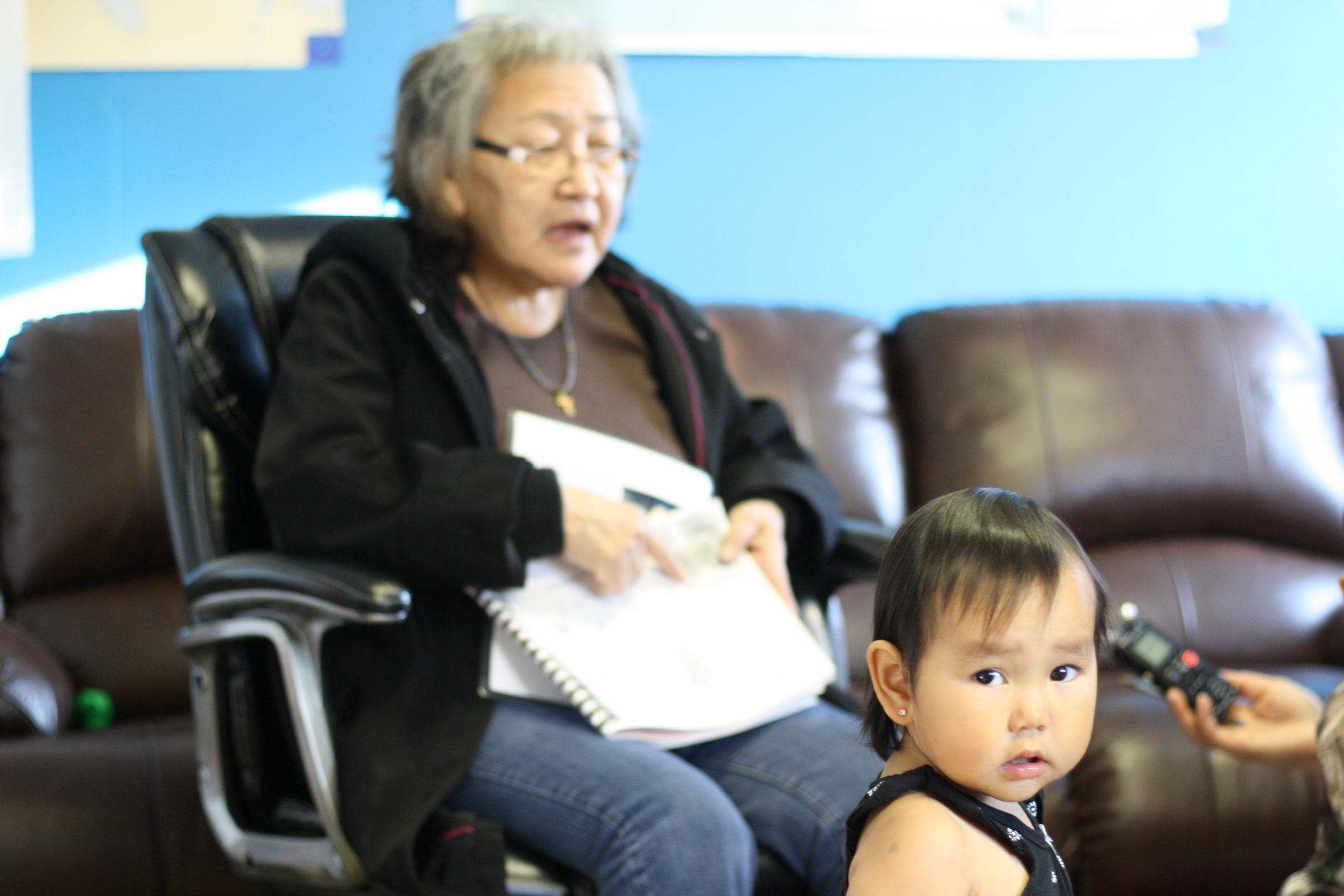
Four kids toddle around a cozy room. There are all the items typical for a pre-kindergarten classroom — stuffed animals, puzzles and teachers.
The puzzles are the kind with a hole cut out for each piece, and each piece is labeled in Yup’ik.
School has been underway in the village of Igiugig for a couple of weeks now. This year even the youngest set are included.
The village has opened its only early childhood education program, Unglu. It is a Yup’ik immersion program for infants to 5-year-olds.
Unglu means “nest.” It’s a part of the larger endeavor, Wangkuta Qanriarait Nanvarparmiut Yugestun, which means “We all speak Lake Iliamna Yup’ik.”
The village started the project with an $850,000 Language Preservation and Maintenance Grant from U.S. Administration for Native Americans.
The grant is in its third and final year.
For the past two years, language apprentices have learned the language from elders who speak Yup’ik fluently.
Apprentices have also taught in the village school 30 minutes a day, four days a week during the school year. Now, they are expanding their efforts, and elders and apprentices are teaching a handful of toddlers three hours a day, five days a week.
“It’s far more than language. It’s spiritual, mental and physical,” said project director, AlexAnna Salmon. “It’s everything into becoming what the Yupik really were,”
The vision behind Unglu is for kids to learn to speak Yup’ik from their earliest days.
Loretta Peterson grew up speaking English, so she is learning her native language alongside her 16-month old daughter.
“It’s just better for her to grow up with her original language. I only knew a small handful of words before I started,” Peterson said.
And the kids are learning.
They dance to the Yup’ik songs and listen as instructors point to pictures and say the names of animals and activities in Yup’ik.
Most of children are too young to talk, but when Salmon told her son to point to different parts of his body, like his knees and toes. The 3-year-old did it without hesitation.
